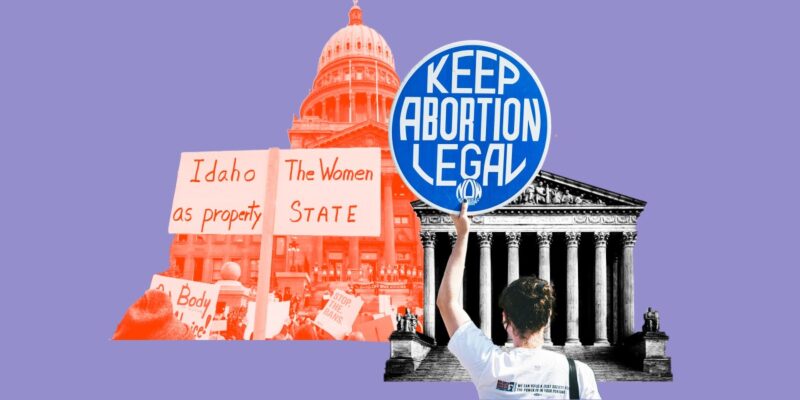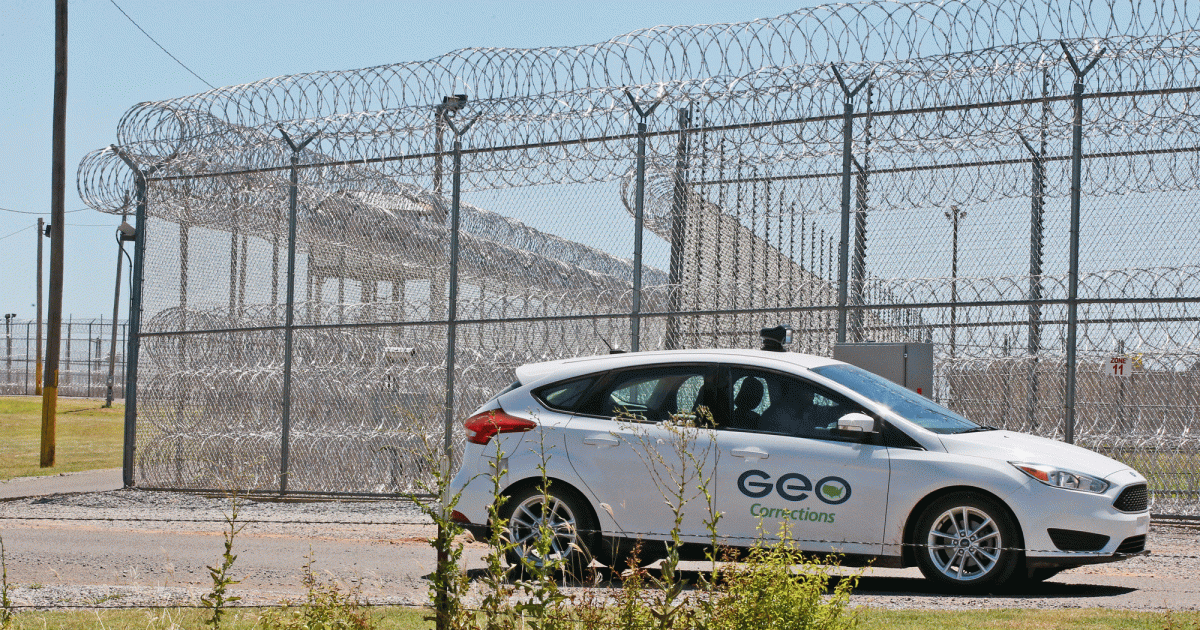
On Wednesday, the Supreme Court heard oral arguments in a case that presented the grim reality of the post-Roe v. Wade world the justices have created. Without a constitutional right to abortion, states are forcing women into grave yet preventable health crises by denying them emergency abortion care. And yet, it appeared that less than half the courtroom acknowledged that reality.
The case arises from Idaho’s extreme abortion ban, which does not contain an exception to preserve the health of the pregnant person. The Biden administration sued, alleging that Idaho’s ban conflicts with a federal mandate to provide stabilizing care in medical emergencies under the Emergency Medical Treatment and Labor Act (EMTALA), even when the patient isn’t expected to die. During oral arguments, Idaho’s lawyer, Joshua Turner, denied the reality of what Idaho’s ban actually does—and the Republican-appointed justices didn’t object.
There are some conditions arising in pregnancy that, if untreated, can lead to grave harm for the pregnant person, including hemorrhage, sepsis, an emergency hysterectomy, stroke, and kidney failure, as well as death. In Idaho and other states with similar bans, ending such a pregnancy is now legal only once an emergency has become imminently life-threatening. The results have been well-documented: pregnant women turned away from emergency rooms, hemorrhaging until near death, spending three days in the ICU with sepsis, uterine scarring that leads to possible infertility, emergency surgery to survive an ectopic pregnancy, patients being driven or airlifted across state lines to receive emergency care. In Idaho, faced with the possibility of criminal prosecution for providing appropriate medical care, 22 percent of obstetricians left the state in the 15 months after the Dobbs ruling overturning Roe, and labor and delivery units have closed.
But during oral arguments, Turner refused to acknowledge that any of this could happen—much less is already happening. It was, to employ an overused term, a bold example of gaslighting, asking the justices to either ignore or disbelieve these well-established medical crises taking place around the country. Turner repeatedly insisted that there is no conflict between EMTALA and Idaho law because in every scenario of a health-threatening pregnancy complication, Idaho’s law would allow an abortion. “Idaho law does not require that doctors wait until a patient is on the verge of death,” Turner said. “There is no imminency requirement. There is no medical certainty requirement.” Yet that’s not how the law is being interpreted in Idaho. Nor is it the reality playing out on the ground.
Justice Sonia Sotomayor pressed Turner on the disconnect between that reality and his legal arguments. What about the actual case of a Florida woman who was turned away from a hospital after her water broke at 16 weeks, only to be rushed to the hospital the next day with life-threatening bleeding? In a scenario like that, could an Idaho doctor provide an abortion on the first day? The answer is clearly no, yet Turner wouldn’t answer.
Justice Amy Coney Barrett interjected, pushing Turner to fully embrace the lie that in this hypothetical scenario, Idaho doctors could provide emergency abortions. “You’re hedging,” Barrett said. “Justice Sotomayor is asking you, would this be covered or not? And it was my understanding that the legislature’s witnesses said that these would be covered.” Then Barrett pressed on, undermining this claim by getting Turner to admit that if a doctor did perform an abortion in this scenario, he could be prosecuted.
In a second colloquy with Sotomayor, Turner seemed to deny the existence of medical scenarios that would present a conflict between EMTALA and Idaho law. “Just answer the point,” said Sotomayor, “which is they will present with a serious medical condition that doctors in good faith can’t say will present death, but will present potential loss of an organ or serious medical complications for the woman, [Idaho doctors] can’t perform [an abortion].”
Turner responded by denying the premise of the question: “Your honor, if that hypothetical exists, and I don’t know of a condition that is so certain to result in the loss of an organ but also so certain not to transpire with death, if that condition exists, yes, Idaho law does say that abortions in that case aren’t allowed.”
But of course, Turner must be aware of such conditions. As Solicitor General Elizabeth Prelogar noted when arguing for the Biden administration, preeclampsia can result in kidney failure, causing a woman to need dialysis for the rest of her life. A stroke, as another example, may not result in death but in serious impairment.
While the GOP-appointed justices largely ignored the factual problems with Turner’s version of reality, at least Justices Barrett and Brett Kavanaugh tried to pin Turner down on whether or not Idaho law actually conflicted with EMTALA. Turner danced around the question. Near the end of the argument, Kavanaugh acknowledged the two conflicting realities being presented. “You’ve touched on what’s happening on the ground and that’s an important consideration,” Kavanaugh ceded to Prelogar. On the other hand, he continued, “Idaho is representing…as I counted nine conditions that have been identified by the government where EMTALA would require that an abortion be available and abortion is available under Idaho law.” Kavanaugh is technically right—the two sides can’t both be telling the truth.
By Idaho’s logic, the hospitals in the state that are airlifting patients across its borders can’t read the statute; the doctors fleeing the state don’t understand the law; the women being put in danger are being taken care of. And then of course, there’s the reality. But it takes a majority of the nine justices to win at the Supreme Court, and only three of them seemed to care about what is actually happening.















